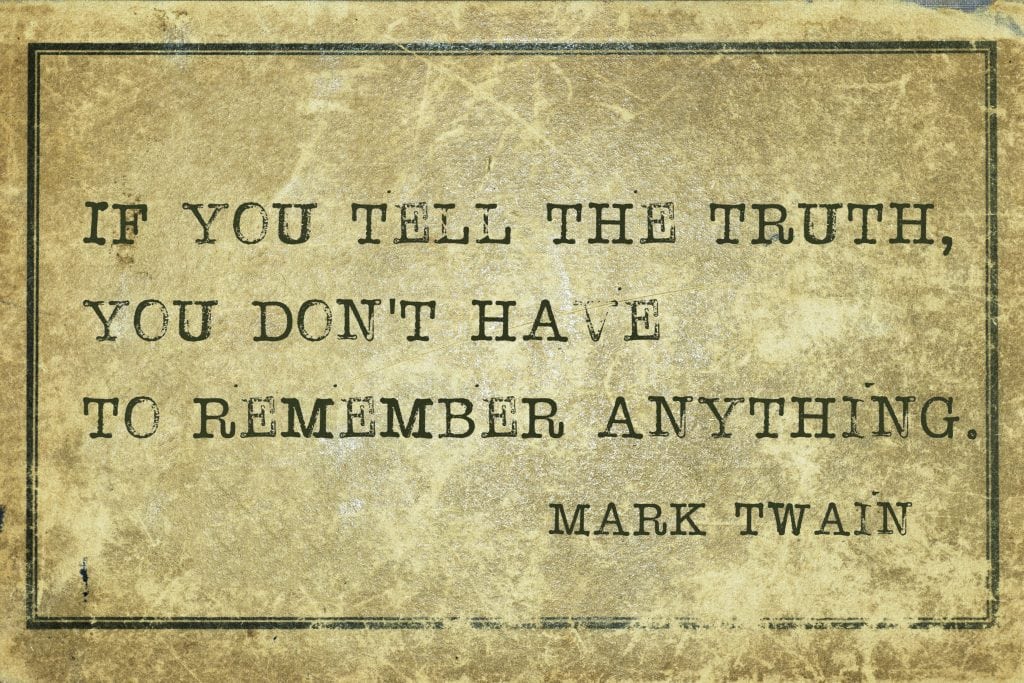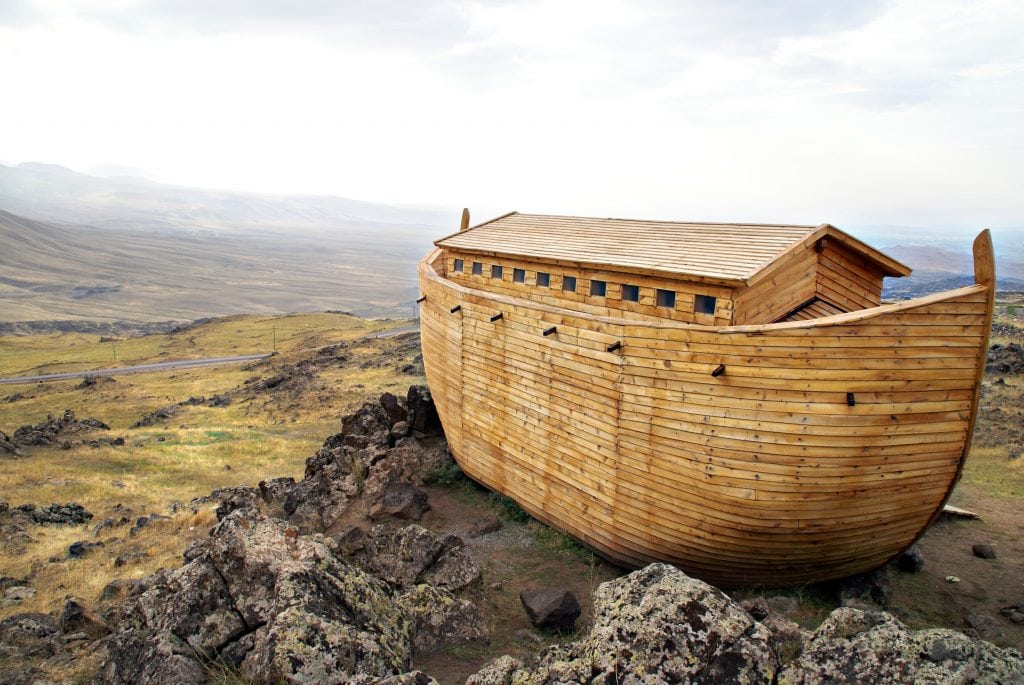filter posts:
Date
Walk in the light you have received
 I remember one Christmas back in the mid-1980s. I cut down a cedar tree in the woods and dragged it into my living room. I put it in the tree stand, which proved to be a bit too wimpy to hold up the sturdy evergreen. So I went outside to get a couple of cinderblocks that I would place on the legs of the tree stand, to give it support. I knew exactly where the blocks were. My mind argued with itself about taking a flashlight into the dark night. “You know where the blocks are; they are not hidden,” one side reasoned. “Yes, but it’s dark out there. You need to see where you are going,” the other side answered. I won the argument with myself … or maybe I lost. Nonetheless, I struck out into the dark wilderness of my backyard and made my way to the stack of cinderblocks. Having reached my destination without a problem, I congratulated the winning side of my brain for having the foresight to leave the flashlight back in the kitchen drawer. I then picked up two of the blocks and lugged them to the back stoop, where I set them down in the light to inspect them for dirt. That’s when I realized that about two inches from my ungloved right hand, inside one of the cinderblocks, was the healthiest black widow spider I had ever seen. Perhaps she had just eaten her husband and was still bloated from the heavy meal, but for whatever reason, I was spared an attack.
I remember one Christmas back in the mid-1980s. I cut down a cedar tree in the woods and dragged it into my living room. I put it in the tree stand, which proved to be a bit too wimpy to hold up the sturdy evergreen. So I went outside to get a couple of cinderblocks that I would place on the legs of the tree stand, to give it support. I knew exactly where the blocks were. My mind argued with itself about taking a flashlight into the dark night. “You know where the blocks are; they are not hidden,” one side reasoned. “Yes, but it’s dark out there. You need to see where you are going,” the other side answered. I won the argument with myself … or maybe I lost. Nonetheless, I struck out into the dark wilderness of my backyard and made my way to the stack of cinderblocks. Having reached my destination without a problem, I congratulated the winning side of my brain for having the foresight to leave the flashlight back in the kitchen drawer. I then picked up two of the blocks and lugged them to the back stoop, where I set them down in the light to inspect them for dirt. That’s when I realized that about two inches from my ungloved right hand, inside one of the cinderblocks, was the healthiest black widow spider I had ever seen. Perhaps she had just eaten her husband and was still bloated from the heavy meal, but for whatever reason, I was spared an attack.
I learned a valuable lesson from that close encounter with a venomous arachnid. Would you like to know what it was? You might want to get a pen and write this down, because this kind of profundity only comes ‘round once in a great while. Here it is: “The light does you no good if you do not use it.”
That’s it. Simple, I know, but in the words of the old country preacher, “That dog will hunt.” You see, a flashlight is useless in the drawer. Headlights are worthless if you don’t turn them on. A front porch light is dangerously without purpose if you throw a T-shirt over it. I learned that lesson the hard way as a teenager when I wanted to have some “private conversation” with a girl on her front porch. Her Daddy was not a happy camper when the smoke from my smoldering shirt smote his nostrils in the living room.
Jesus said it like this: “Men do not light a lamp and put it under a basket, but on a stand, and it gives light to all in the house.”
Walking in the light of the truth you have received greatly improves your vision. You can see better when you follow Christ. That doesn’t mean he will not lead you through hard times, narrow places and difficult spots. There are dark valleys where we cannot see the next step and must walk by faith and not by sight. But there are also times when we are in the dark because we choose to be there. He has given us the light of understanding but we have chosen to reject it or neglect it.
The old saying is true, that God will only give more light to the one who is walking in obedience to the light that he has already received. That’s where I want to live, in the light. It keeps me honest. It might keep my hands away from poisonous spiders, as well.
March 27, 2017
Why not just tell the truth?
 Here’s a pop quiz for you. What is more serious than impatience and more dangerous than grumbling?
Here’s a pop quiz for you. What is more serious than impatience and more dangerous than grumbling?
James would answer, “Lying is,” because it gets to the ultimate issue of personal integrity. We are bombarded by lies on a daily basis. We hear them on the radio and television, and read them in the news. Politicians and advertisers lie to us. And if we can be totally honest with ourselves, we tell lies, too. We lie to ourselves, to each other, even to God. For some, lying is an art, a craft that they hone and perfect. They understand that lying can move a product or build a resume. They know that, “A lie can travel around the world, while truth is still lacing up its boots.”
We call it “fake news” in the media. We also see that every time a politician opens his mouth these days, there are 50 people fact-checking every word. Sadly, that happens out of necessity. One President in the late 1990s said to his top aides, “There is nothing going on between us,” referring to his White House intern. Of course it came out that there was plenty going on, so when the President was asked before a grand jury to explain his statement that he had made to his top aides, he replied, “It depends on what the meaning of the word ‘is’ is. If the — if he — if ‘is’ means is and never has been, that is not — that is one thing. If it means there is none, that was a completely true statement.”
Huh? Go back 25 years before him, and you hear another President say at a press conference, “I am not a crook.” Which turned out to be a lie. We would all be justified in our anger against these men if we did not have to look at ourselves in the mirror every day. We also shade the truth, exaggerate, and sometimes just flat-out tell lies.
Now I am aware there may be a moral relativist reading this column who would respond, “You’re making a big deal about ‘truth’, but really, there is no Truth with a capital T. There is only little-t truth, which is a construct. Your truth is your truth, and my truth is my truth.” I would say to them, your life proves that you don’t believe that. Because when you get your Duke Energy bill, and the company has inadvertently added a zero, you call them up. You say, “You have made a huge mistake. The power bill should have been $175, but you charged me $1750!” You don’t expect them to say, “Hey, $175 is your truth, but $1750 is our truth. Pay the bill or lose your power.” No, and it’s the same when you go to the doctor to talk about your MRI. You don’t want him to tell you his truth with regard to the results. “Well, the MRI shows a huge mass in your pancreas, and conventional wisdom says we need to aggressively treat that or you will not be here next year at this time. But my truth is that you are fine. Forget about it. Live happy. It’s probably nothing, in fact, I am sure it is.” No, the relativist trashes his own doctrine at that point, as well as that doctor, gets a second opinion and demands the objective truth. My integrity and yours depends on truth-telling, or crumbles for its lack.
James said it plainly: “Let your ‘yes’ be yes, and your ‘no’ be no.” In other words, why not just tell the truth?
March 20, 2017
We learn to be patient in suffering
 Susan is a 14-year-old girl who lives in a Muslim family in Uganda. One day a person spoke at her school about Jesus, His sacrifice for our sins, and how a person can be redeemed through faith in Him. That day, Susan gave her life to Jesus. When she got home and her father heard about it, he grabbed Susan and her brother by the hair and dragged them into the front yard. He put a knife at her throat and told Susan that he would kill her and her brother if she did not stop talking about her faith in Jesus. Susan did not stop. So her father took her to a room in the house where there was a single mat on the floor. He made her sit on the mat and said, “You will not get off of that mat until you renounce your faith in Jesus.” Then he locked the door. And he didn’t open it again for three months. The only way Susan survived was that her brother would dig a hole under the door and pour water into it. Susan would lean over from the mat and lap up the water. He fried bananas and put them under the door so she wouldn’t starve. One day the neighbors asked the brother where Susan was. He told them and they called the police. When they opened the door, they were horrified to find Susan, barely alive, weighing only 44 lbs., her bones beginning to deform because of the way she had sat for three months. When asked why she had never moved from that spot, had never gotten off the mat, Susan said, “Because my father told me that if I got off the mat, I would be denying Christ.” (Open Doors USA)
Susan is a 14-year-old girl who lives in a Muslim family in Uganda. One day a person spoke at her school about Jesus, His sacrifice for our sins, and how a person can be redeemed through faith in Him. That day, Susan gave her life to Jesus. When she got home and her father heard about it, he grabbed Susan and her brother by the hair and dragged them into the front yard. He put a knife at her throat and told Susan that he would kill her and her brother if she did not stop talking about her faith in Jesus. Susan did not stop. So her father took her to a room in the house where there was a single mat on the floor. He made her sit on the mat and said, “You will not get off of that mat until you renounce your faith in Jesus.” Then he locked the door. And he didn’t open it again for three months. The only way Susan survived was that her brother would dig a hole under the door and pour water into it. Susan would lean over from the mat and lap up the water. He fried bananas and put them under the door so she wouldn’t starve. One day the neighbors asked the brother where Susan was. He told them and they called the police. When they opened the door, they were horrified to find Susan, barely alive, weighing only 44 lbs., her bones beginning to deform because of the way she had sat for three months. When asked why she had never moved from that spot, had never gotten off the mat, Susan said, “Because my father told me that if I got off the mat, I would be denying Christ.” (Open Doors USA)
I thought about that story as I read what the book of Hebrews says of prophets of old: “They were stoned, they were sawn in two, they were killed with the sword.” Those words, written nearly 2,000 years ago, are just as true today. In many countries, and the number is growing, those who speak the truth about Jesus, as Susan did in Uganda, suffer and sometimes die because of their testimony. James writes in his letter, “As an example of suffering and patience, brothers and sisters, take the prophets who spoke in the name of the Lord.” It’s vital that we understand as followers of Christ that patience and suffering are traveling companions. We grow in patience if we suffer well, and we suffer well by practicing patience in the midst of the trial, by looking to the Lord to be the lifter of our head.
What do we learn from the prophets and from testimonies like Susan’s? First, God allows suffering in the lives of those who speak for Him, so that their life will back up their message. Second, we are not to go silent in times of suffering. The will of God does not lead us where the grace of God cannot keep us. Even the sword cannot separate us from the love of Christ.
I am thankful for my Ugandan sister whom I have never met. Her story of faith in Jesus, no matter the cost, moves and inspires me. She inspires me to pray for her and the millions of Christians around the world who suffer simply because of what they believe about God. And it inspires me to stand and speak about Him who is the author and the finisher of our faith. He is worthy of any price that I have to pay.
March 13, 2017
Do not worry about what you can’t control
 At the funeral of a dear friend last week, I heard the following story from David, one of her sons.
At the funeral of a dear friend last week, I heard the following story from David, one of her sons.
Seems this lady was a classic worrier, even though her faith was firmly settled in Jesus. And as classic worriers tend to do, and really all of us do this, they worry much about things that are outside of their control. The son got a phone call from his dad years ago. He said it startled him a little because his parents always called at certain times in the week, and this was outside the norm. His pastor dad sounded very concerned and asked his son if he would do something for him. Of course, the son answered, and waited to hear the news. He knew his parents were getting ready to leave soon for a trip to Hawaii, and he knew that for his mother, flying was death. But he was surprised to hear his father say something about the fruitcakes that David’s mom loved to make, and how she always included brandy in the recipe. And he was reminded that his dad had to travel two counties over to buy the brandy, lest someone would see him, their pastor, in the ABC store. Then his father said, “If our plane goes down, don’t grieve or mourn or do anything until you’ve done this. Go directly to our house, look in the shed, and on the floor behind the freezer, you will find the bottle of brandy. Destroy it at once.” The folks in the memorial service roared with laughter, and a few minutes later it was the older son’s turn to give a eulogy for his mom. Jeff looked from the pulpit to his father in the front row and said, “I just have one question, Dad. Why was it that the younger son got to know where the brandy was kept?”
In his letter, James tells his readers to be patient until the coming of the Lord. Then he reminds them that the farmer is absolutely dependent on the rain. And we know that rain is absolutely outside of our control. Farmers have to trust God with what is His to do. I love the late Keith Green’s song, “He’ll Take Care of the Rest,” especially his verse about Noah: “You just think about Noah, totin’ his umbrella, when there wasn’t a cloud in the sky. All his neighbors would laugh at his pet giraffe, and they would snicker as he passed by. But the Lord said, ‘Hey Noah, be cool — you just keep building that boat, it’s just a matter of time, ’til they see who’s gonna float; you just keep doing your best, and pray that it’s blessed; hey Noah, I’ll take care of the rest, I’m the weather man!’” If you know the story, you know that Noah worked for 100 years, building an ark in a world that had never seen rain, much less a flood.
What we learn from Noah was that not only did he trust God completely with the things that were outside of his control, but he also trusted God completely with the things that were under his control. What was in Noah’s control? The ark. He was told by God to build the ark. His obedience was just as necessary as the rain. He couldn’t control the rain: that was on God. He could only control his obedience.
So, why do we worry? Jesus said, “Which of you by being anxious can add a single hour to his span of life?”
March 6, 2017
